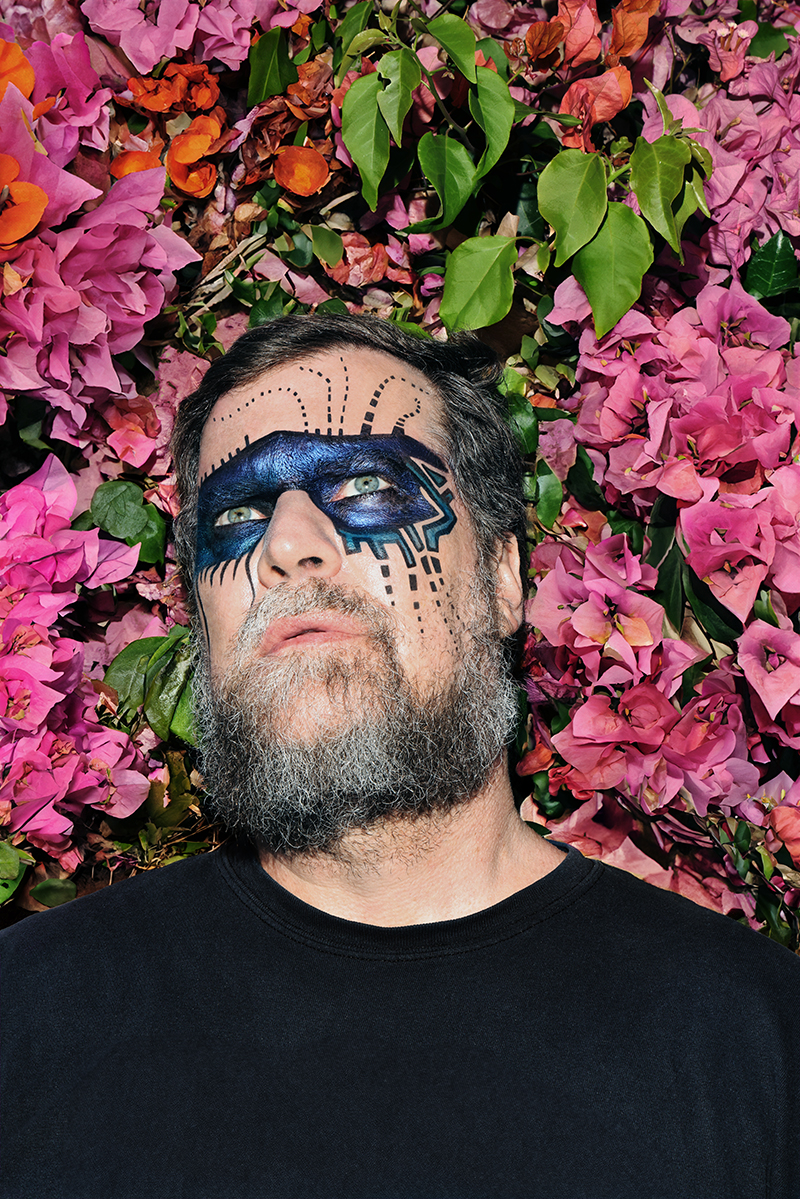Album Review: David Byrne’s “American Utopia on Broadway”
David Byrne's American Utopia concert, now on Broadway, birthed a magnificent cast album that's nothing short of thrilling

As contenders for Broadway cast albums go, a David Byrne album is an unlikely one, and the results are about as strange as you might imagine. Endlessly creative and curious, there is no denying Byrne is an acquired taste, but if a listener is willing to take him on his own terms, they get a glimpse into his hyper-observant mind and probably come away looking at the world differently. Byrne has been a thoughtful observer of culture and society for his entire career, but comes together spectacularly on his latest project, American Utopia on Broadway (★★★★☆).
The live show may share its name with his latest release, but it there is far more to it than that. Songs from the album are only a small part of the live show’s catalogue, as Byrne mines his career right back to the Talking Heads, including new takes on “Road to Nowhere,” “Blind,” and “Burning Down the House,” along with a scattering of post-Heads, pre-Utopia work for good measure.
As a live show, American Utopia on Broadway is by all accounts bizarre and stunning. An ensemble of 11 musicians accompanies Byrne on a mostly bare stage, untethered and unencumbered in theory, but moving according to tight choreography, reflecting his admitted obsession with marching bands and color guards. Even in the form of a cast album, divorced from the visual spectacle and the physical presence of the musicians, the songs demand attention. Always a fan of percussion, Byrne’s initial idea for the show was to perform with an entire group of drummers, and these percussive elements are at the heart and soul of the show.
American Utopia‘s closing track “Here” functions as the Broadway show’s opener. It announces the live show as a continuation and extension of the album, rather than a simple redux. “Bullet,” already chillingly matter-of-fact, is given an even starker treatment on the cast album. Similarly, “Every Day Is A Miracle” takes on added excitement and urgency in the ensemble. Social attachment and webs of human connection, so central to Byrne’s thinking behind the original album, are given literal form on stage, and hold up well in the cast recording. While American Utopia is the kind of project that could only have come from Byrne, the Broadway catalogue comes across as very much a collaborative project, with Byrne as a kind of curator-ringleader.
Given its selection of songs from a decades-long span of time, the cast recording is remarkable for its cohesion. The tracks from American Utopia bleed seamlessly together with the non-album songs, likely a reflection of Byrne’s own continued preoccupations over the years. Among the tracks given a recut is “Road to Nowhere,” the Talking Heads’ upbeat take on impending doom, already heavily percussive and covered so faithfully that it might as well have been written for the show.

The inclusion of several Talking Heads recuts in the live show might have something to do with their crowd-pleasing qualities, but more obscure material like the 2008 deep cut “Toe Jam” would seem to indicate that Byrne wants us to be interested in what he is interested in, popular or not. “I Should Watch TV,” from Byrne’s 2012 collaboration with St. Vincent, is another highlight that easily fits into the catalogue with its wry, cheerfully dystopian mood. The easy coexistence of newer and older material sets the album up as more of a culmination of a career spent observing the world around him than a simple retrospective.
Towards the end, Byrne includes a rendition of “Hell You Talmbout,” covered with Janelle Monáe’s blessing, as he makes a point of noting. A call-and-response song with a heavy beat, it fits neatly with the aesthetic sensibility of the show, but it is far more striking for what its inclusion implies about the project’s worldview. Going out of his way to cover the song at the tail end of a show inspired by utopia is a powerful and self-aware acknowledgment that even aspirational utopias are unevenly shared, and there is still a long way to go and much difficult work to be done before we come close to achieving one.
American Utopia on Broadway is a feel-good project that nevertheless drops some uncomfortable observations and even less comfortable questions. New songs coexist comfortably alongside old and much older material, arranged with plenty of care and thought into a cohesive project that invites its audience to observe the society around them and their place in it. Far from an easy listen, it demands attention and investment, pulling its audience in with its idiosyncratic instrumentation and hooking them with all of Byrne’s infectious, wonderful weirdness.
American Utopia on Broadway can be purchased from Amazon and iTunes, and is available on most major streaming services.
David Byrne’s American Utopia is playing through Feb. 16, 2020, at the Hudson Theatre, 141 W. 44th St. in New York City. Tickets range from $69 to $499. Call 855-801-5876 or visit www.hudsonbroadway.com.
Support Metro Weekly’s Journalism
These are challenging times for news organizations. And yet it’s crucial we stay active and provide vital resources and information to both our local readers and the world. So won’t you please take a moment and consider supporting Metro Weekly with a membership? For as little as $5 a month, you can help ensure Metro Weekly magazine and MetroWeekly.com remain free, viable resources as we provide the best, most diverse, culturally-resonant LGBTQ coverage in both the D.C. region and around the world. Memberships come with exclusive perks and discounts, your own personal digital delivery of each week’s magazine (and an archive), access to our Member's Lounge when it launches this fall, and exclusive members-only items like Metro Weekly Membership Mugs and Tote Bags! Check out all our membership levels here and please join us today!
























You must be logged in to post a comment.